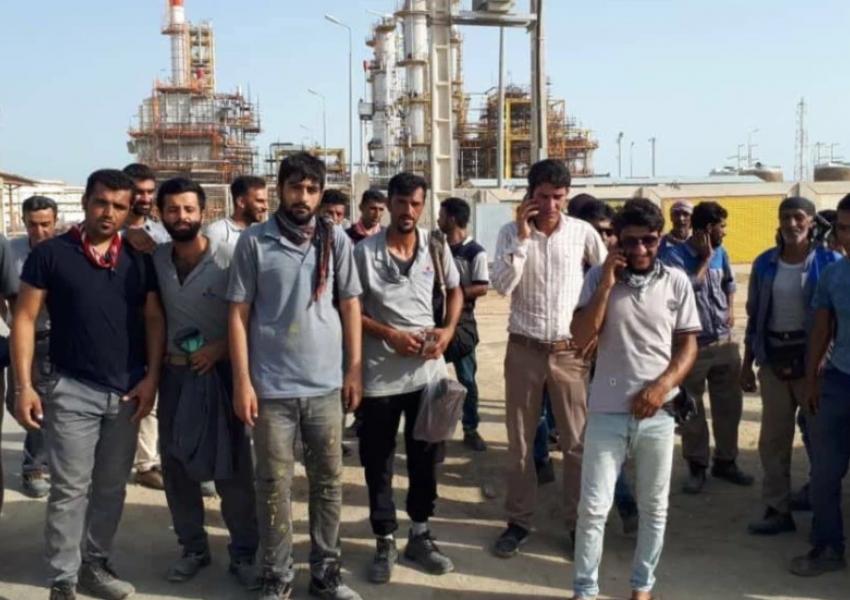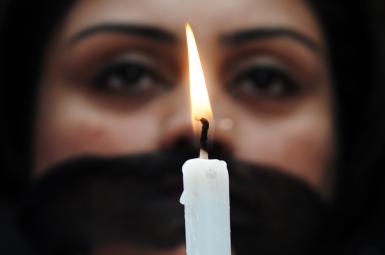
Energy Workers Want Government Pledges To End Strikes
In a statement on Tuesday [July 6] the Coordination Council of Oil Industries Contract Workers said authorities' offers to workers to end their strike, which began June 19 and is dubbed “Campaign 1400” after the current Iranian solar year, must be "official, written and public."
The striking workers, who number thousands in 85 companies, are not government employees but employed by contractors and sub-contractors of the National Iranian Oil Company (NIOC), the National Iranian Gas Company (NIGC), and the National Iranian Oil Refining and Distribution Company. The council’s statement said some contractors had made offers to workers in both the oil and petrochemical sectors but urged a common stand: "Our industrial action is encompassing and we should not allow scattered offers here and there harm our solidarity."
The strikers want monthly wages boosted from around 72 million rials ($300) to 120 million rials ($500), better benefits, guarantees of timely payments, free company health-care, and more time off to allow trips home. They have also demanded the re-instatement of 1,000 workers they say have been laid off since the strike began.
There are over 150,000 workers without regular employment status in the energy and petrochemical industries − mostly technicians and tradesmen such as scaffolders, fitters, welders, and electricians. According to the Iranian Labour News Agency (ILNA), workers claim that 80 percent lack secure contracts.
ILNA reported Tuesday that a delegation from the ministry of cooperatives, labor, and social welfare had been dispatched to Asalouyeh in Bushehr province to investigate. Workers told ILNA that they wanted to engage with the delegation and hoped the meeting could help realize their demands.
It is unclear how far industry contractors can go to appease the striking workers. The energy sector has been battered since 2018 by United States ‘maximum pressure’ sanctions that reduced oil exports from 2.5 million barrels a day (bpd) to an average few hundred thousand.
Iran does earn substantial foreign currency from exporting petrochemicals, which have proved resilient to ‘maximum pressure.’ Petrochemicals make up around a third of Iran’s non-oil exports, with production up 6 percent year-on-year in the first 50 days of the fiscal year according to government figures.
Strikes in the oil sector are unlikely to have any early effect as Iran has substantial amounts of crude in storage. Citigroup estimates over 100 million barrels -which analysts say could allow an additional 1 million bpd to be exported if agreement is reached in Vienna nuclear talks to ease US sanctions.
President Hassan Rouhani said last week he would instruct the minister of labor to address the issues raised by the workers to resolve them along with contractors, given the strikers were not employees of the oil ministry or other government bodies.




